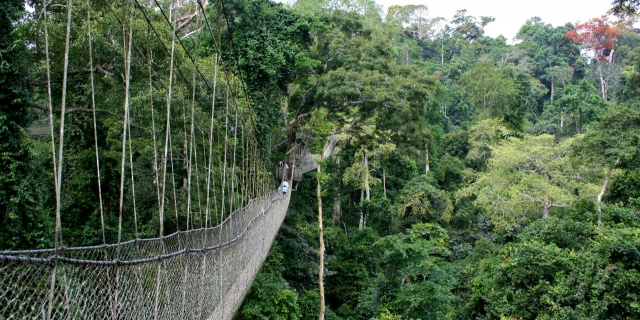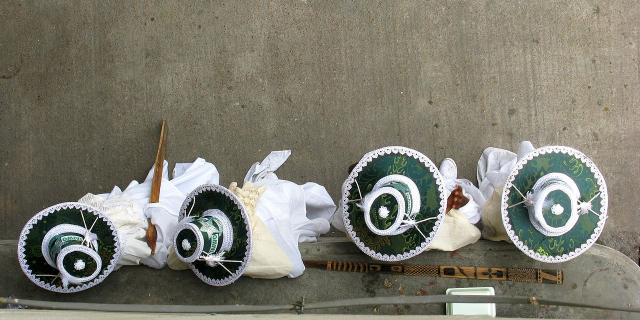Ghana
Context of Ghana
Ghana ( (listen)), officially the Republic of Ghana, is a country in West Africa. It abuts the Gulf of Guinea and the Atlantic Ocean to the south, sharing borders with Ivory Coast in the west, Burkina Faso in the north, and Togo in the east. It covers an area of 238,535 km2 (92,099 sq mi), spanning biomes that range from coastal savannas to tropical rainforests. With over 32 million inhabitants, Ghana is the second-most populous country in West Africa, after Nigeria.
The Bono state existed in the area during the 11th century. Kingdoms and empires emerged over the centuries, including the Kingdom of Dagbon in the north and the Ashanti Empire in the south. Beginning in the 15th century, the Portuguese Empire, followed by other European powers, contested the area for trading rights, until the British ultimately established control of the coast by the 19th centu...Read more
Ghana ( (listen)), officially the Republic of Ghana, is a country in West Africa. It abuts the Gulf of Guinea and the Atlantic Ocean to the south, sharing borders with Ivory Coast in the west, Burkina Faso in the north, and Togo in the east. It covers an area of 238,535 km2 (92,099 sq mi), spanning biomes that range from coastal savannas to tropical rainforests. With over 32 million inhabitants, Ghana is the second-most populous country in West Africa, after Nigeria.
The Bono state existed in the area during the 11th century. Kingdoms and empires emerged over the centuries, including the Kingdom of Dagbon in the north and the Ashanti Empire in the south. Beginning in the 15th century, the Portuguese Empire, followed by other European powers, contested the area for trading rights, until the British ultimately established control of the coast by the 19th century. Following over a century of colonisation, borders took shape, encompassing 4 separate British colonial territories: Gold Coast, Ashanti, the Northern Territories, and British Togoland. These were unified as an independent dominion within the Commonwealth of Nations on 6 March 1957, becoming the first colony in West Africa to achieve sovereignty. Ghana subsequently became influential in decolonisation efforts and the Pan-African movement.
Ghana is a multi-ethnic country with linguistic and religious groups; while the Akan are the largest ethnic group, they constitute a plurality. Most Ghanaians are Christians (71.3%); almost a fifth are Muslims; a tenth practise traditional faiths or report no religion. Ghana is a unitary constitutional democracy led by a president who is head of state and head of government. It has maintained one of the freest and stable governments on the continent since 1993. It performs relatively well in healthcare, economic growth, and human development. The state also has an influence in West Africa and Africa as a whole. It is a founding member of the Non-Aligned Movement, African Union and a member of the Economic Community of West African States, Group of 24 and Commonwealth of Nations.




























